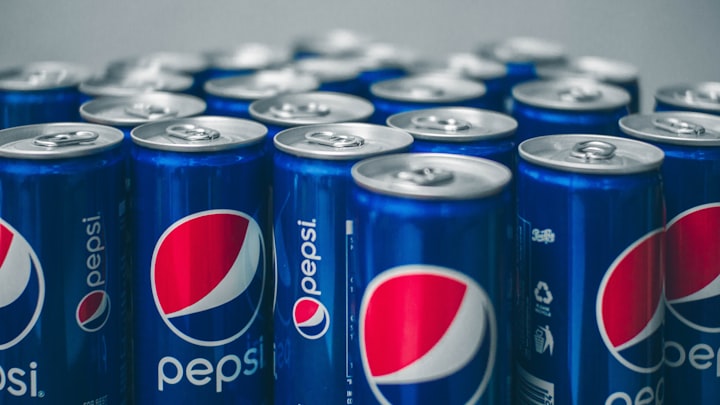Pepsi Side Effects
Side Effects of Consuming Soft Drinks

Pepsi is a carbonated soft drink that has been around for over a century. It was first introduced in the United States in the late 1890s and quickly became popular due to its sweet and refreshing taste. Pepsi is now available in over 200 countries worldwide and is one of the most recognized brands in the world. However, despite its popularity, Pepsi has been linked to various harmful effects on an individual's health. In this blog post, we will explore the harmful effects of Pepsi in more detail and provide insight into how to consume it in moderation.
High Sugar Content
One of the most significant harmful effects of Pepsi is its high sugar content. A 12-ounce can of Pepsi contains approximately 41 grams of sugar, which is equivalent to 10 teaspoons. Consuming too much sugar can lead to weight gain, tooth decay, and an increased risk of type 2 diabetes and other health problems.
According to the American Heart Association (AHA), the recommended daily sugar intake for men is no more than 9 teaspoons (36 grams) and for women is no more than 6 teaspoons (25 grams). A single can of Pepsi exceeds this daily limit, making it easy to consume more sugar than is healthy when drinking Pepsi regularly.
Artificial Sweeteners
Pepsi also contains artificial sweeteners, such as aspartame, which are used to provide a sweet taste without the calories. However, these sweeteners have been linked to negative health effects, including headaches, digestive problems, and an increased risk of certain types of cancer.
One of the most common artificial sweeteners used in Pepsi is aspartame, which has been linked to various health concerns. According to the National Cancer Institute, there is no evidence that aspartame causes cancer, but some studies have suggested that it may increase the risk of certain types of cancer, such as lymphoma and leukemia.
Caffeine
Pepsi contains caffeine, which is a stimulant that can cause an increase in heart rate, blood pressure, and anxiety. Regular consumption of caffeine can also lead to dependence and withdrawal symptoms.
A 12-ounce can of Pepsi contains approximately 38 milligrams of caffeine. While this may not seem like a lot, consuming too much caffeine can lead to negative health effects, such as insomnia, anxiety, and an increased risk of heart disease.
Phosphoric Acid
Pepsi contains phosphoric acid, which is used to provide a tangy taste and enhance the drink's carbonation. However, excessive consumption of phosphoric acid has been linked to a variety of health problems, including tooth decay, osteoporosis, and kidney stones.
According to a study published in the Journal of Clinical Endocrinology & Metabolism, drinking cola beverages that contain phosphoric acid can lead to a decrease in bone density, which can increase the risk of osteoporosis and fractures. Phosphoric acid can also lead to tooth decay by eroding tooth enamel.
Weight Gain
Regular consumption of Pepsi and other sugary drinks has been linked to weight gain and obesity. Excess weight can increase the risk of heart disease, type 2 diabetes, and other health problems.
According to a study published in the journal Obesity, individuals who consume sugary drinks regularly are more likely to gain weight and become obese than those who consume them infrequently. This is because sugary drinks like Pepsi are high in calories but do not provide the same level of satiety as solid food, leading to overconsumption of calories.
Tooth Decay
The high sugar content in Pepsi can also lead to tooth decay. When sugar is consumed, it combines with bacteria in the mouth to produce acid, which can erode tooth enamel and lead to cavities.
Dehydration - Despite being a drink, Pepsi can also contribute to dehydration. This is because it contains caffeine, which is a diuretic that can increase urine output and lead to dehydration if consumed in excessive amounts.
Though Pepsi may be a refreshing drink, it also has harmful effects on an individual's health if consumed in excessive amounts. The high sugar content, artificial sweeteners, caffeine, and phosphoric acid in Pepsi can lead to weight gain, tooth decay, dehydration, and an increased risk of type 2 diabetes and other health problems. It is essential to consume Pepsi and other sugary drinks in moderation and maintain a balanced diet to avoid potential harmful effects on an individual's health.
About the Creator
Arun Ramasamy
Nature Lover, Just go with the flow, techno freek.
Do what you can.. don't when you cannot.






Comments
There are no comments for this story
Be the first to respond and start the conversation.